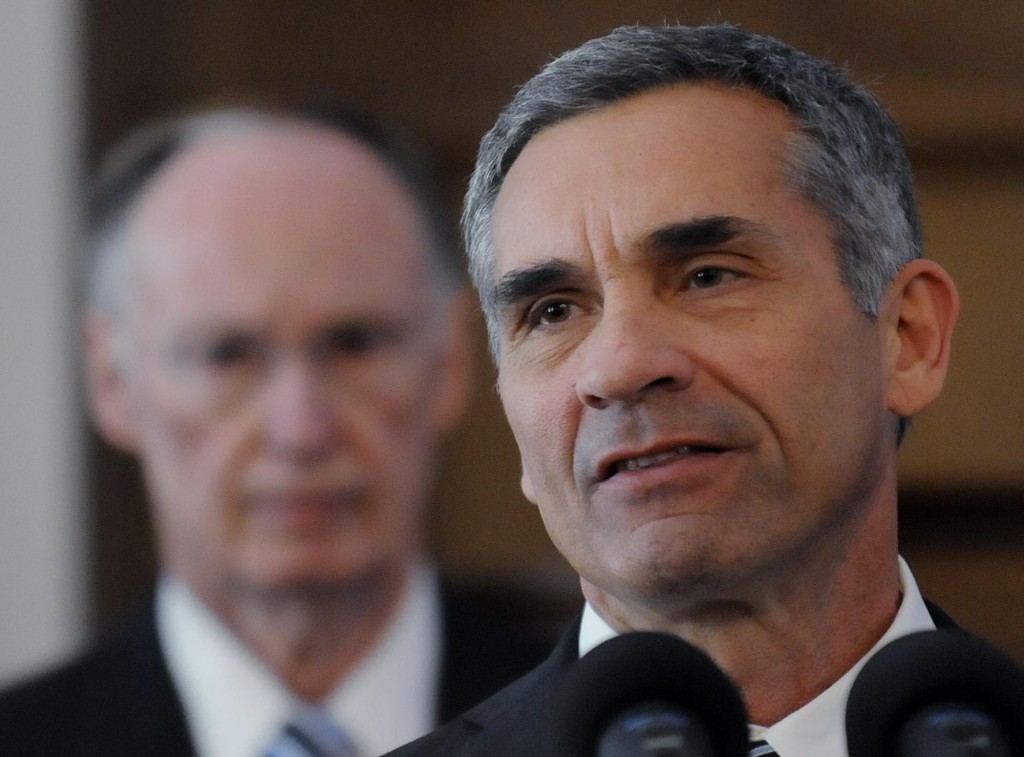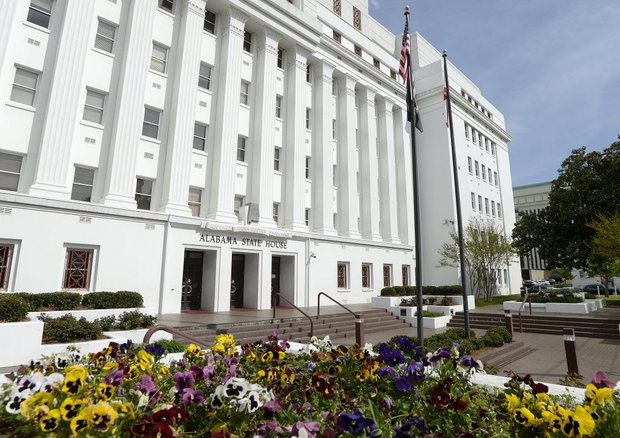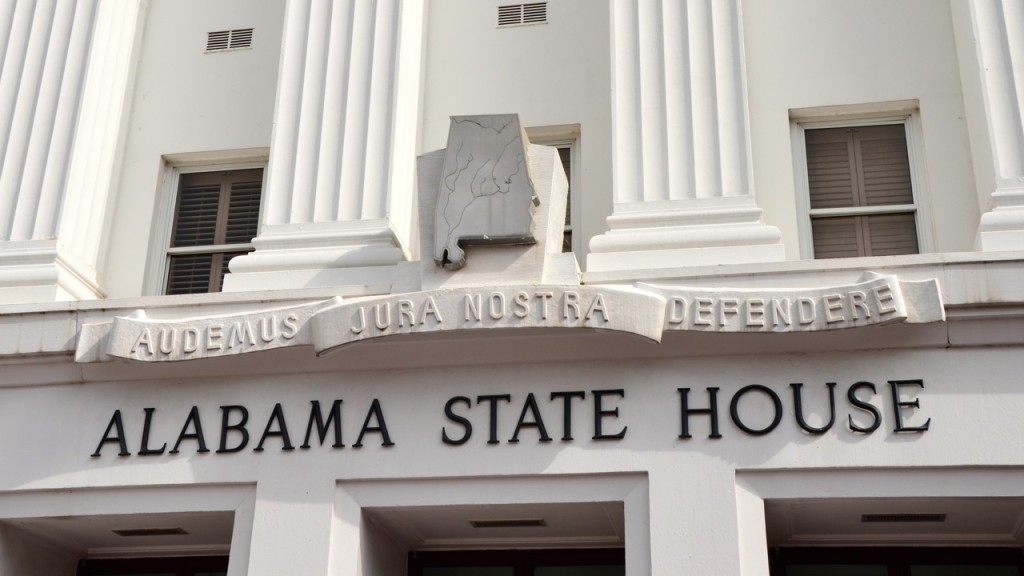Panelists debate gaming legislation in Mobile
Mobile news station WJTC/UTV 44 held the state’s first public forum on the issue of increased gaming since Sen. Del Marsh introduced legislation Tuesday. Marsh’s bill would create a state lottery and allow casino-style gaming in four Alabama locations. Included on the panel were three participants whose groups have publicly spoken against the bill and Prichard City Councilman Lorenzo Martin, who expressed his support for allowing the public to vote on the issue. Panelists included: John Hill, senior analyst for the Alabama Policy Institute; Les Bernal, national director of Stop Predatory Gambling; Prichard City Councilman Martin; and Robert McGhee, government relations adviser and treasurer of the Poarch Band of Creek Indians tribal council. An early question asked the potential for more gambling addictions. Bernal framed the discussion with strong criticism of any state policy based on gaming: “When you use gambling for profit, it becomes predatory because the business model is about exploiting people. You’re letting them spend far beyond their means. And the idea that state government would be partners in that is unjust and wrong.” Bernal pointed to examples in Florida and Georgia of state-run lottery programs intended to help all residents, but end up paid for by the state’s poorest communities. “The poorest counties in Georgia bought the most tickets, but the wealthiest counties got the benefit of the programs,” he said. “Middle class families in Georgia don’t have to save for their kids’ education, because they know the poor will pay for it.” McGhee, though, said Indian gaming has made a positive difference in the Native American community. McGhee said that his tribe spends millions of dollars year from Indian casinos on education and county repairs, like roads. The Poarch Band of Creek Indians he represents propose an alternative to the current bill that would include a one-time payment to the state in exchange exclusive gaming rights. He said much of the tribe’s gaming revenue goes toward paying its share of federal health care and education benefits for tribe members. He warned that the strict federal gaming regulation that Poarch Creek follows is missing in the current legislation. “Our current concern is that legislation has no regulatory process in place. They don’t tell you how they’re going to pay for that regulatory process. There are a lot of unanswered questions. “The current legislation is not good for the state of Alabama. They tell you all these jobs will be created, but they don’t tell you how.” Many audience questions asked about lack of clarity in the proposal, specifically on where the projected proceeds from the gaming proposal would be directed. Martin echoed that concern, saying that proceeds should go to heal disadvantaged minority neighborhoods and to encourage community revitalization. Hill countered with his belief that a lottery would do little to overcome the budget deficit or address community concerns. “I have very little faith in the ability of our legislators to keep their word on this,” Hill said. “Even if we raised $100 million in gambling revenue this year or next year, we’re not solving the problems of the government spending too much or living within its means. Three or four years from now, these problems are going to come back, they’re going to be worse than ever, and we won’t have gambling to fall back on.” “Unfortunately,” he said, “none of the lottery proposals out there would help anybody’s issues here at all.” As the discussion turned to a recommendation from Marsh and the House Republican caucus that Gov. Robert Bentley pursue a compact with the Poarch Band of Creek Indians, McGhee said the tribe is most interested in establishing a positive partnership with the state. “We provide government programs to our members and our constituents, like health care and educational scholarships. And we employ more than 5,000 employees throughout the state,” McGhee said. “We want to be better partners with the state and to be able to help Alabama with its fiscal and financial problems, but can only do that with a vote.” Marsh’s proposed Senate Bill 453 is a constitutional amendment that requires a popular vote. In a press conference on Tuesday, Marsh urged the governor to allow the proposal to be put up for vote in September. Martin echoed his support for allowing voters to decide on whether to expand gaming in Alabama. “Stop gambling with our lives, with our education, with our health, and with our public school systems,” Martin said. “There are so many things that people are being held back from because they’re impoverished. Let’s vote and make a decision on where you want to go.” Viewers took to Facebook and Twitter using the hashtag #YourVoiceYourFuture to weigh in on the discussion. Here are some of their comments: @LOCAL15NEWS No. The expense of the fallout of legalized gambling will surpass the benefits and politicians will still overspend. — Kevin Cobb (@WeMoKevin) May 8, 2015 @LOCAL15NEWS #yourvoiceyourfuture gamblers are going to gamble no matter what. So why not keep the money in #AL with a lottery? — Kimiko Mura (@MuraKimiko) May 8, 2015 @LOCAL15NEWS #Yourvoiceyourfuture If we are going to vote on everything, we don’t need the legislature. — Joe Godfrey (@ALCAPministry) May 8, 2015 @LOCAL15NEWS Alabamians have been spending their money in other states for years! It’s time to bring that revenue home! — Jennifer Jones (@skyjenn11) May 8, 2015 LIVE NOW Town Hall: Alabama State Lottery. Do you support a lottery in Alabama? Join in on the discussion and post your… Posted by Local 15 NBC News, WPMI Mobile on Thursday, May 7, 2015.
Committee to hold public hearing on Del Marsh’s gaming proposal

For those with strong opinions on the proposal to expand gaming and create a state lottery you will not have to wait long to weigh in. The Senate Tourism and Marketing Committee has scheduled a public hearing for 1 p.m. Tuesday to hear the bill, Senate Bill 453. The bills sponsor, Sen. Del Marsh chairs that committee. This bill has received bipartisan support as an effort to bring increase revenue coming into the state without increasing taxes. Birmingham Mayor William Bell joined Marsh at a recent news conference in support of the bill highlighting economic impact. The other gaming proposal on the table is to grant exclusive rights to the Poarch Band of Creek Indians. The Poarch have reportedly offered the state a one-time payment of $250 million to allow them to keep their monopoly rather than pursue the Marsh plan, which focuses on job creation and increased tax revenues. According to an AP report, Marsh has said he “will ask the committee to vote the same day as the hearing”.
Quick look: 5 hot topics state and national from budget to Baltimore

Short thoughts on current hot topics: State: Statehouse: This week is sure to be … colorful. From tax increases on the calendar to the gaming prospects being kicked around there’s a lot to debate, I’m sure everyone has a strong opinion about what we should or shouldn’t do to get through this Session and budget crisis but let’s hope we can fare better than our neighbors in Florida and get through it without a total meltdown . I don’t envy lawmakers who will be hearing from all sides that the solutions being offered are all bad and unworkable. Our elected officials aren’t sent to Montgomery to designate a state bee or cake or other such trivial matters (yes, I saw the Queen Bee designation is back on the calendar this week), they’re sent there to make tough decisions like the ones we’re seeing now. Here’s hoping they weigh their options and take the one that makes the most sense for the long-term health of the state and its budget. Poarch Creek vs. Free-Market: The Poarch Band of Creek Indians offered to give the state $250 million toward the deficit to not expand gaming to anyone but them. Rarely am I left speechless at a political proposal, but this one just strikes me as so unconventional I can’t write about it without using terms like anti-free market or bribe, or without pointing out the cliched, but appropriate, objection to the government picking winners and losers. The offer was countered by a proposal for four new casinos lacks the same long-term revenue projections or the job creation and is frankly just as far from free-market as one can get. Can anyone not personally benefiting actually believe this is a good idea? We’ll soon see. Uber and other ridesharing: I could get another cup of coffee and pontificate all day on all the reasons we need a state bill in support of ride sharing, because we do. Instead, I urge you to read our guest op-ed by radio host Will Lochamy on the subject. Need an incentive to click through? There’s a photo of a sleeping member you won’t want to miss included in the post. National: On the shooting in Texas: There was an attack in Texas last night that was much more than it seems it wasn’t just an attack at an art show it was an attack on the First Amendment. Every mainstream media report that emphasized the theme of the event in Texas as anti-Muslem attack got it wrong. The violence shown in Texas was anti-free speech and in our country free speech, however controversial, is protected. The best part of the U.S. Constitution is that it guarantees certain freedoms and secures essential rights regardless of public opinion. So long as using your rights doesn’t deprive others of theirs, I can hate and despise your words and/or actions but I will defend your ability to exercise them. You can expect this event to stir up a lot of discussion but let’s hope the underlying issue doesn’t get lost in the debate. On Baltimore: The lines of people standing in front of law enforcement, protecting them was as powerful as any image I witnessed during the recent riots as were the many photos of those cleaning up or simply peacefully protesting. It gave me hope for Baltimore which is now starting to see quiet as curfews have been lifted and the worst appears to be over in terms of the riots and violence. It doesn’t take much to see that we are at a crossroads in our nation, continue to handle racial tensions crisis-by-crisis or confront the underlying animosity and distrust that continues to spill in the streets of our most vulnerable communities between the protests and tragedy. That is the only way we stop and prevent it. We must seize the time now when the streets are not burning to identify where they could be next and calm the fear, address the imbalance of justice and prevent violent protests. Community leaders regardless of race, religion, political affiliation or the other labels that separate us need reach across the lines that divide to peacefully lead conversations. I’ve heard a lot of talk about these conversations lately but they need to happen not only on the editorial pages and on network television but in local churches and community centers in the places that matter. Photo Credit: Jim Watson, AFP Getty Images
This week at the Statehouse: Legislative Days 19-20

The talk of the town this week is expected to be about the gaming proposals Sen. Del Marsh drafted and sent home to members last week and the Poarch Creek Indian Tribe’s counter offer. Then there’s the lawsuit that the State Auditor Jim Zeigler has announced he’ll drop Monday to challenge Attorney General Luther Strange for his decision not to challenge school boards from using tax payer money to lobby for tax increases. Here are some of the proposals expected to move in the statehouse this week: Sen. Cam Ward’s comprehensive prison reform bill Senate Bill 67 could go to the House floor was early as Tuesday, according to reports from AL.Com. On Tuesday in the House Ways and Means Committee there will be four bills up. They include House Bill 572 which would raise the cigarette taxes from $.425 a pack to $.675 a pack, House Bill 267 which would raise the rental car tax from one-half percent to four percent and House Bill 590 which would authorize the state skipping the 2015-2016 longevity pay paid out at the beginning of December for state employees. On Wednesday, an education policy panel will hear comments on House Bill 243 to authorize local boards of education to admit or readmit students up to age 21 into the 12th grade. That same panel is expected to vote on Erin’s Law House Bill 197, a proposal to provide age-appropriate instruction in public schools on recognizing and avoiding child sexual abuse. The health committee is slated to vote on a trio of proposals governing abortion on Wednesday. The committee declined to vote last week following public hearings on the Fetal Heartbeat Act, the Healthcare Rights of Conscience Act, and a proposal to bar clinics within 2,000 feet of a public school. Keep checking ALToday.com for updates. *Article updated to reflect tax bills heard on Tuesday not Wednesday.


